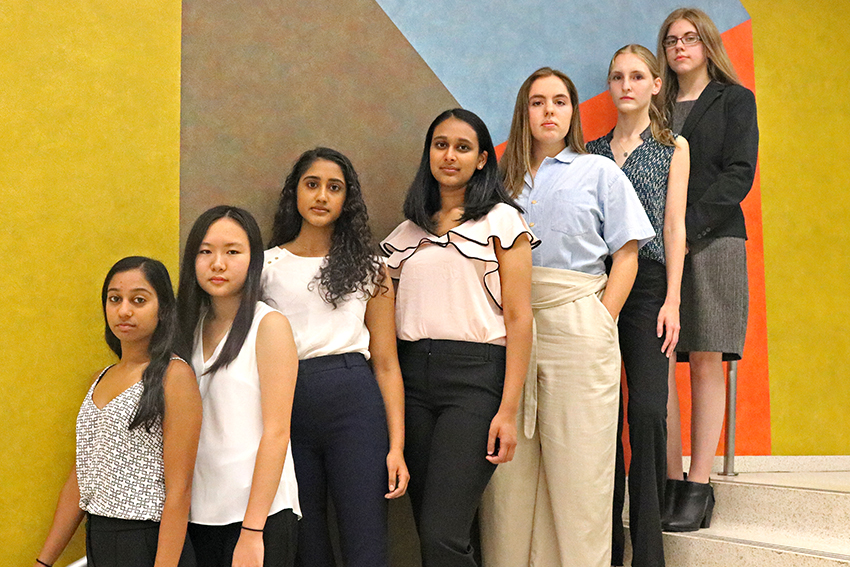Out of the 58 freshmen who joined this year’s Turing Scholars Program, seven are women.
Created in 2002, Turing, the computer science honors program, allows students to take more challenging classes and find elite job opportunities. This year, the program admitted 129 freshmen, 37 of which are women. Of the 37, only seven decided to attend UT.
“Our department’s numbers, while not great, are about the national average,” said Calvin Lin, director of the Turing Scholars Program. “I think fundamentally, we have a pretty good environment for our students. It’s not perfect, and the gender ratio is something that isn’t right. It’s something we want to fix.”
Lin said the male and female students in the program have similar graduation rates, which sets Turing apart from other computer science schools in the country. The Turing website advertises a program with 22 percent women in comparison to a 13 percent national average of women in computer science. For the class of 2018, the program is 12 percent women.
“In high school, there was this gender gap in STEM, but I never really felt it, and I never felt intimidated by it,” freshman Turing Scholar Niti Malwade said. “The moment college started, I felt it. It was so strong for me, and it was always in the back of my head for the first two weeks. It definitely defined my introduction into Turing.”
All seven women said they experienced struggles with STEM being a male-dominated environment. Malwade said one boy would quiz her every day on why Turing accepted her but rejected him.
Freshman Turing Scholar Anusri Shah said a family friend told her she’ll get internships easier now because she’s a girl, and another boy told her she’ll always have a date.
“It’s hard for people to see a woman as a well-rounded person,” Shah said. “You can have kids, and be a mom, and still be great. It’s like men can be multiple things, whereas women have to fit into a category. When you don’t fit into a category, they don’t know how to define you.”
Women in Computer Science, a UT organization, helps students adjust to the imbalanced ratio. It created a mentorship program in which upperclassmen help underclassmen, and it hosts networking events to connect female students to corporate sponsors. However, freshman Turing Scholar Emily Peterson said she doesn’t want too much focus on her gender.
“It’s unfortunate that all these opportunities go untapped by women, but at the same time, I’m glad that they don’t try to pad women into the program just to fill a gender ratio,” Peterson said. “That would detract from the way that women are received in the group. We’re the same as everyone else. We don’t want it to be that we got in because we’re girls.”
In the past five years, the number of freshman women admitted to the program has ranged from 26 to 42. Out of those, the number who decided to actually attend ranged from 15 to this year’s number of seven. But freshman Turing Scholar Disha Rao said these numbers still give her hope.
“The trend is moving in the right direction,” Rao said. “Despite the fact that we have very few girls, the atmosphere is incredible. I’ve never once really felt oppressed or left out. I think the industry is going toward a good place, especially with the kids in our classes who will be in it soon.”
She said this trend showed after Shah won freshman representative for the Turing Scholar Student Association, who ran for the position after being urged on by fellow Turing Scholar Dede Zhou.
“I hope society as a whole move towards more women in STEM,” Zhou said.





















